Trivia Browser
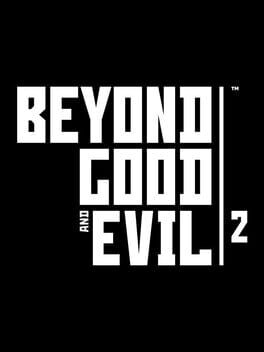
▲
1
▼
In September 2020, it was announced that the game's original director and series creator Michel Ancel would be retiring from the video game industry to focus on working for a wildlife sanctuary, but it was assured that development would continue without him. Later that month, the French newspaper "Libération" reported that several members of his team at Ubisoft Montpellier had accused him of acting abusive and unorganized, resulting in numerous delays and restarts since the game's announcement in 2008. This behavior was allegedly worsened by his simultaneous work on Wild (a big-budget game announced in 2014), preventing him from working on Beyond Good & Evil 2 with its team full-time. Although reports were submitted to company leadership as early as 2017, it was alleged that Ancel's relationship with Ubisoft co-founder Yves Guillemot prevented any major corrections from occurring until June and July 2020, when employees from all over the company came forward with sexual abuse and other misconduct allegations against high-ranking executives. Ubisoft would later comment that Ancel had not been directly involved in the game's development for "some time now" before his departure.
Ancel was interviewed as part of Libération's investigation. He claimed that Guillemot informed him that Ubisoft was investigating him in early August 2020, but claimed he was unaware that numerous team members blamed him for the game's development issues, and believed they were actually caused by long-term stress and burnout. He claimed he resigned on his own accord and that his only regret was not finishing the game sooner. The newspaper claimed that the interview took place on September 18th, the same day that Ancel and Ubisoft's statements about the departure were released. One week later when the report and interview were published, Ancel denied all of the allegations in an Instagram post, calling the articles "fake news" and accusing the newspaper of publishing them as soon as possible to conflate them with the earlier Ubisoft allegations in June and July, over a month before Ubisoft's investigation into him allegedly began.
Ancel was interviewed as part of Libération's investigation. He claimed that Guillemot informed him that Ubisoft was investigating him in early August 2020, but claimed he was unaware that numerous team members blamed him for the game's development issues, and believed they were actually caused by long-term stress and burnout. He claimed he resigned on his own accord and that his only regret was not finishing the game sooner. The newspaper claimed that the interview took place on September 18th, the same day that Ancel and Ubisoft's statements about the departure were released. One week later when the report and interview were published, Ancel denied all of the allegations in an Instagram post, calling the articles "fake news" and accusing the newspaper of publishing them as soon as possible to conflate them with the earlier Ubisoft allegations in June and July, over a month before Ubisoft's investigation into him allegedly began.
Libération report (first two articles in French):
https://www.liberation.fr/images/2020/09/25/jeu-video-les-coulisses-effarantes-d-un-blockbuster-geant_1800522/
Libération Michel Ancel interview:
https://www.liberation.fr/images/2020/09/25/michel-ancel-si-j-etais-reste-il-n-y-aurait-pas-eu-de-beyond-good-and-evil-2_1800385/
Michel Ancel departure article:
https://www.eurogamer.net/rayman-creator-michel-ancel-quits-video-games-industry-to-work-on-wildlife-sanctuary
Ancel departure Instagram post:
https://www.instagram.com/p/CFRbPpnqCxu
Accusations against Ancel:
https://www.vg247.com/report-michel-ancel-accused-of-abusive-disruptive-practices-on-beyond-good-evil-2
Ubisoft comment about Ancel's departure:
https://www.pcgamer.com/beyond-good-and-evil-creator-michel-ancel-quits-videogames-to-work-in-an-animal-sanctuary/
Kotaku article:
https://kotaku.com/report-beyond-good-evil-2-director-michel-ancel-left-1845184216
Ancel allegations denial Instagram post:
https://www.instagram.com/p/CFkrhX3KXu6/
Bloomberg article detailing roots of Ubisoft developer allegations before Ancel:
https://www.bloomberg.com/news/articles/2020-06-26/metoo-in-gaming-two-ubisoft-executives-placed-on-leave
https://www.liberation.fr/images/2020/09/25/jeu-video-les-coulisses-effarantes-d-un-blockbuster-geant_1800522/
Libération Michel Ancel interview:
https://www.liberation.fr/images/2020/09/25/michel-ancel-si-j-etais-reste-il-n-y-aurait-pas-eu-de-beyond-good-and-evil-2_1800385/
Michel Ancel departure article:
https://www.eurogamer.net/rayman-creator-michel-ancel-quits-video-games-industry-to-work-on-wildlife-sanctuary
Ancel departure Instagram post:
https://www.instagram.com/p/CFRbPpnqCxu
Accusations against Ancel:
https://www.vg247.com/report-michel-ancel-accused-of-abusive-disruptive-practices-on-beyond-good-evil-2
Ubisoft comment about Ancel's departure:
https://www.pcgamer.com/beyond-good-and-evil-creator-michel-ancel-quits-videogames-to-work-in-an-animal-sanctuary/
Kotaku article:
https://kotaku.com/report-beyond-good-evil-2-director-michel-ancel-left-1845184216
Ancel allegations denial Instagram post:
https://www.instagram.com/p/CFkrhX3KXu6/
Bloomberg article detailing roots of Ubisoft developer allegations before Ancel:
https://www.bloomberg.com/news/articles/2020-06-26/metoo-in-gaming-two-ubisoft-executives-placed-on-leave
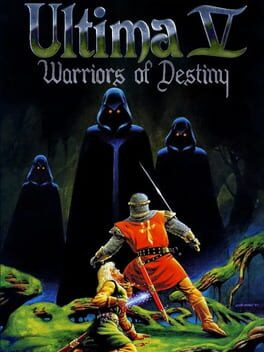
▲
1
▼
 One of the dungeon rooms in the game features children locked in jail cells. The player can free the children by pushing on a spot in the wall, but upon being freed, they will attack the player. Series creator Richard Garriot created this room in an effort to involve players emotionally and psychologically in the gameplay by posing a situation where they alone would have to think and decide whether or not to slaughter children. While killing the children is the easiest way to get out of that room, there are multiple methods to spare the children, such as using the Charm or Sleep spells. The game offers no punishment or reward for sparing or killing them, and since this event had no impact on the rest of the game, Garriot did not care how players resolved it.
One of the dungeon rooms in the game features children locked in jail cells. The player can free the children by pushing on a spot in the wall, but upon being freed, they will attack the player. Series creator Richard Garriot created this room in an effort to involve players emotionally and psychologically in the gameplay by posing a situation where they alone would have to think and decide whether or not to slaughter children. While killing the children is the easiest way to get out of that room, there are multiple methods to spare the children, such as using the Charm or Sleep spells. The game offers no punishment or reward for sparing or killing them, and since this event had no impact on the rest of the game, Garriot did not care how players resolved it.This room would spark internal controversy when a religious fundamentalist playtester working at Origin Systems' New Hampshire division discovered the room and became outraged, believing the company was promoting child abuse. Instead of contacting Richard Garriot, he wrote a letter to Richard's brother Robert outlining his grievances with it and his resignation from the company, which led to Robert and his parents arguing with Richard over the phone to remove the room from the game. He defended the room by pointing out that players were not guaranteed to see it out of the 256 individual rooms in the game, that they did not have to free the children in the first place, and that they could spare them and did not have to kill them to either escape the room or win the game. He argued that his family and the playtester were trying to censor what he could do artistically while misunderstanding that the room was not meant to be explicitly offensive, and in the end, the room remained in the final game.
Shay Adams - "The Official Book of Ultima" First and Second Editions (1990, 1992). ISBN 0-87455-228-1, ISBN 0-87455-264-8 (Pages 64-66 in both books):
https://archive.org/details/Ultima_Guide_OfficialBookOfUltima/
https://archive.org/details/TheOfficialBookOfUltima/
Quote blog post:
https://skullsinthestars.com/2009/12/04/richard-garriott-on-ultima-v/
Image source:
https://wiki.ultimacodex.com/wiki/Children#Controversial_Trademark
https://archive.org/details/Ultima_Guide_OfficialBookOfUltima/
https://archive.org/details/TheOfficialBookOfUltima/
Quote blog post:
https://skullsinthestars.com/2009/12/04/richard-garriott-on-ultima-v/
Image source:
https://wiki.ultimacodex.com/wiki/Children#Controversial_Trademark

▲
1
▼
When Pac-Man Doodle was released, Maurice Molyneaux, who was the certification authority for Pac-Man ports at the time, was angry as he was not informed of its existence by Namco Networks' marketing group, who developed the game. Molyneaux has stated that had he been informed of the game prior to release, he would have made minor modifications to the maze layout.
Maurice Molyneaux talks about Pac-Man Doodle:
https://twitter.com/8bit_Maurice/status/1784794925101658312
Molyneaux on Toru Iwatani:
https://twitter.com/8bit_Maurice/status/1750657785782759908
https://twitter.com/8bit_Maurice/status/1784794925101658312
Molyneaux on Toru Iwatani:
https://twitter.com/8bit_Maurice/status/1750657785782759908

subdirectory_arrow_right Pac-Man World Re-Pac (Game)
▲
1
▼
Pac-Man World's ending has been noted for containing darker humor compared to the game's otherwise lighthearted tone. The game's antagonist Toc-Man, the robot impostor who kidnapped Pac-Man's family, is revealed to be Orson, a tearful grey ghost who just wanted to be as famous as Pac-Man, who responds to this by pretending to show sympathy before eating him. According to the game's designer, Scott Rogers, his reasoning for this tonal shift was:
Rogers also noted that they wanted to have Pac-Man respond to Orson's cry of "nobody loves a ghost!" with "I do!" (in the sense of loving to eat a ghost), but this was scrapped alongside Pac-Man's voice as a whole.
Pac-Man World: Re-Pac amends this divisive ending by designating it as a bad ending and adding a new good ending. If the player fails to rescue Pac-Man's family, the ending plays out as it did in the original game, with an added scene where Orson's ghost minions choose to rescue Pac-Man's family themselves, but if the player successfully rescues Pac-Man's family, he opts to forgive Orson.
"If someone terrorized, kidnapped, and imprisoned your friends and family, you'd probably want to eat them too."
Rogers also noted that they wanted to have Pac-Man respond to Orson's cry of "nobody loves a ghost!" with "I do!" (in the sense of loving to eat a ghost), but this was scrapped alongside Pac-Man's voice as a whole.
Pac-Man World: Re-Pac amends this divisive ending by designating it as a bad ending and adding a new good ending. If the player fails to rescue Pac-Man's family, the ending plays out as it did in the original game, with an added scene where Orson's ghost minions choose to rescue Pac-Man's family themselves, but if the player successfully rescues Pac-Man's family, he opts to forgive Orson.
Twitter thread interview with Scott Rogers:
https://twitter.com/DailyPacMan/status/1548088755763888129
Pac-Man World cutscenes:
https://www.youtube.com/watch?v=1I8bA-6QNh4
Both Pac-Man World Re-Pac endings:
https://www.youtube.com/watch?v=adPHuphqr7o#t=389
https://twitter.com/DailyPacMan/status/1548088755763888129
Pac-Man World cutscenes:
https://www.youtube.com/watch?v=1I8bA-6QNh4
Both Pac-Man World Re-Pac endings:
https://www.youtube.com/watch?v=adPHuphqr7o#t=389
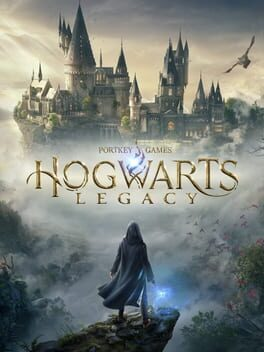
▲
1
▼
Hogwarts Legacy is notable for introducing the first transgender character in the Harry Potter franchise in the form of Sirona Ryan, the owner of the Three Broomsticks pub who outright tells the player that it took her classmates "a second to realize I was actually a witch, not a wizard". This drew attention as the creator of the Harry Potter franchise, J.K. Rowling, has generated controversy over the years by making comments that many have criticized as transphobic. It is worth noting that while she would receive profits from the game's sales leading many fans to boycott the game, she had no involvement in its development. In regards to the inclusion, the developers stated:
However, after the character was revealed, several fans further complained that the name Sirona Ryan rendered the inclusion of a transgender character tone deaf and continued promoting the boycott. The name "Sirona" originates from the Celtic goddess of healing and rebirth and is symbolized with imagery of snakes (animals that shed their skin) and eggs (where many birds, fish and reptiles among other animals emerge from after incubating). Despite being a feminine name, they claimed to perceive it as a male-presenting name due to that variant of the name containing and potentially being shortened to "Sir", while also pointing out that the surname "Ryan" was a masculine name and an anglicized form that was used instead of the less common authentic Gaelic name "Riain". This set up the name to appear as an unintentional pun: "Sir Ryan". Despite these complaints, the boycott turned out to be a failure as Hogwarts Legacy became commercially successful, selling over 12 million copies in its first two weeks of release and going on to sell double that amount by the end of 2023.
"The team felt that it was very important to create a game that is representative of the rich and diverse world of Harry Potter as well as the groups of people who play games, which includes the LGBTQIA+ community. We have a diverse cast of characters that players will encounter throughout the game.”
However, after the character was revealed, several fans further complained that the name Sirona Ryan rendered the inclusion of a transgender character tone deaf and continued promoting the boycott. The name "Sirona" originates from the Celtic goddess of healing and rebirth and is symbolized with imagery of snakes (animals that shed their skin) and eggs (where many birds, fish and reptiles among other animals emerge from after incubating). Despite being a feminine name, they claimed to perceive it as a male-presenting name due to that variant of the name containing and potentially being shortened to "Sir", while also pointing out that the surname "Ryan" was a masculine name and an anglicized form that was used instead of the less common authentic Gaelic name "Riain". This set up the name to appear as an unintentional pun: "Sir Ryan". Despite these complaints, the boycott turned out to be a failure as Hogwarts Legacy became commercially successful, selling over 12 million copies in its first two weeks of release and going on to sell double that amount by the end of 2023.
NME article:
https://www.nme.com/en_au/news/film/hogwarts-legacy-introduces-first-transgender-character-in-harry-potter-franchise-3394348
Forbes article:
https://www.forbes.com/sites/tylerroush/2023/02/11/hogwarts-legacy-amid-jk-rowling-controversy-charts-record-breaking-pc-release/
Clutch Points articles:
https://clutchpoints.com/hogwarts-legacy-controversial-sirona-ryan
https://clutchpoints.com/hogwarts-legacy-leads-in-twitch-viewers-and-steam-players-despite-ongoing-boycott
Sirona Wikipedia article:
https://en.wikipedia.org/wiki/Sirona_(goddess)
Ryan surname history:
https://www.ancestry.com/name-origin?surname=ryan
Hogwarts Legacy sales:
https://www.statista.com/statistics/1374325/hogwarts-legacy-games-unit-sales-worldwide/
https://www.nme.com/en_au/news/film/hogwarts-legacy-introduces-first-transgender-character-in-harry-potter-franchise-3394348
Forbes article:
https://www.forbes.com/sites/tylerroush/2023/02/11/hogwarts-legacy-amid-jk-rowling-controversy-charts-record-breaking-pc-release/
Clutch Points articles:
https://clutchpoints.com/hogwarts-legacy-controversial-sirona-ryan
https://clutchpoints.com/hogwarts-legacy-leads-in-twitch-viewers-and-steam-players-despite-ongoing-boycott
Sirona Wikipedia article:
https://en.wikipedia.org/wiki/Sirona_(goddess)
Ryan surname history:
https://www.ancestry.com/name-origin?surname=ryan
Hogwarts Legacy sales:
https://www.statista.com/statistics/1374325/hogwarts-legacy-games-unit-sales-worldwide/

▲
1
▼
The game is notable for two puzzles considered by fans and critics to respectively be one of the best and worst ever made for an adventure game.
The puzzle "Le Serpent Rouge" ("The Red Snake") involves decoding torn-up poem stanzas by hunting for information during the game and solving geometric mapping puzzles. This puzzle was widely praised for its overarching complexity and intriguing nature regardless of the player's interest in the real-life mysteries of Rennes-le-Château, a Southern French commune crucial to the game's plot that has been covered in various books and conspiracy theories. The poem was originally included in the "Secret Files of Henri Lobineau", a 1967 dossier about the fraternal organization the Priory of Sion, and was modified to make the puzzle solvable. Lead designer Jane Jensen named it her favorite and most challenging puzzle, designing it around the game's fully controllable 3D camera.
Meanwhile, a puzzle designed by producer Steven Hill was disliked internally and was meant to be replaced with a puzzle by Jensen, but they were forced to leave it in the game due to time constraints. It starts with Gabriel Knight finding that his friend Detective Mosely arrived in France the night before in a tour group and is scheduled to rent a motorcycle that day, so he goes to rent one himself. The nearsighted rental stand clerk requires a passport to confirm arrivals, revealing that the only rides he has left are a bike saved for Mosely and a cheap scooter. To get the bike, Knight plans to disguise as Mosely by Spoiler:stealing his coat and passport, and hiding his long blonde hair in a hat, despite putting it in a visible ponytail. He then draws a mustache on Mosely's passport photo to obscure their facial differences, goes to a shed, puts masking tape on a hole in the shed door, sprays a nearby cat with water causing it to run into the tape and stick fur to it, and applies it to his face with some maple syrup from breakfast to make a fake mustache. The disguise inexplicably works, and Knight gets the bike.
Moreso than Le Serpent Rouge was praised, the disguise puzzle was roundly criticized for its lack of hints, the impossibility of Knight convincingly impersonating Mosely, and the cartoonish roundabout way of Spoiler:making the mustache clashing with the game's serious tone. Critics felt that while it was not the most difficult puzzle, the solution was too absurd for the average player to think it would work. The most scathing review came from future Valve writer Eric Wolpaw, who blamed Jensen for the poor design (it was not known at the time that she did not design it), and called the process of Spoiler:making the mustache "deranged", controversially declaring it was proof that adventure games "committed suicide". While Jensen disliked the puzzle, she thought it being the death of adventure games was "kinda overblown", and the "length of the sequence and the lack of hints" was what made it bad.
The puzzle "Le Serpent Rouge" ("The Red Snake") involves decoding torn-up poem stanzas by hunting for information during the game and solving geometric mapping puzzles. This puzzle was widely praised for its overarching complexity and intriguing nature regardless of the player's interest in the real-life mysteries of Rennes-le-Château, a Southern French commune crucial to the game's plot that has been covered in various books and conspiracy theories. The poem was originally included in the "Secret Files of Henri Lobineau", a 1967 dossier about the fraternal organization the Priory of Sion, and was modified to make the puzzle solvable. Lead designer Jane Jensen named it her favorite and most challenging puzzle, designing it around the game's fully controllable 3D camera.
Meanwhile, a puzzle designed by producer Steven Hill was disliked internally and was meant to be replaced with a puzzle by Jensen, but they were forced to leave it in the game due to time constraints. It starts with Gabriel Knight finding that his friend Detective Mosely arrived in France the night before in a tour group and is scheduled to rent a motorcycle that day, so he goes to rent one himself. The nearsighted rental stand clerk requires a passport to confirm arrivals, revealing that the only rides he has left are a bike saved for Mosely and a cheap scooter. To get the bike, Knight plans to disguise as Mosely by Spoiler:stealing his coat and passport, and hiding his long blonde hair in a hat, despite putting it in a visible ponytail. He then draws a mustache on Mosely's passport photo to obscure their facial differences, goes to a shed, puts masking tape on a hole in the shed door, sprays a nearby cat with water causing it to run into the tape and stick fur to it, and applies it to his face with some maple syrup from breakfast to make a fake mustache. The disguise inexplicably works, and Knight gets the bike.
Moreso than Le Serpent Rouge was praised, the disguise puzzle was roundly criticized for its lack of hints, the impossibility of Knight convincingly impersonating Mosely, and the cartoonish roundabout way of Spoiler:making the mustache clashing with the game's serious tone. Critics felt that while it was not the most difficult puzzle, the solution was too absurd for the average player to think it would work. The most scathing review came from future Valve writer Eric Wolpaw, who blamed Jensen for the poor design (it was not known at the time that she did not design it), and called the process of Spoiler:making the mustache "deranged", controversially declaring it was proof that adventure games "committed suicide". While Jensen disliked the puzzle, she thought it being the death of adventure games was "kinda overblown", and the "length of the sequence and the lack of hints" was what made it bad.
Gabriel Knight 3: Blood of the Sacred, Blood of the Damned - Le Serpent Rouge poem and walkthrough:
https://www.youtube.com/watch?v=y7b47CJrnyc
https://sierrachest.com/index.php?a=games&;id=39&title=gabriel-knight-3&fld=walkthrough&pid=101
Hunting Shadows: The Making of Gabriel Knight - Chapter 5:
https://web.archive.org/web/20200513021453/https://episodiccontentmag.com/2015/11/20/hunting-shadows-the-making-of-gabriel-knight-chapter-5-of-5/
Anastasia Salter - "Jane Jensen: Gabriel Knight, Adventure Games, Hidden Objects" (2017) - Influential Video Game Designers. Bloomsbury Publishing USA. ISBN 978-1501327452. (Pages 58-60):
https://books.google.com/books?id=cPEkDgAAQBAJ
Jane Jensen Adventure Gamers interview:
https://web.archive.org/web/20190715214638/https://adventuregamers.com/articles/view/18170
Le Serpent Rouge real poem article:
https://www.renneslechateau.nl/2012/01/13/the-red-serpent/
Le Serpent Rouge puzzle miscellaneous Adventure Gamers acclaim:
https://web.archive.org/web/20210715000329/https://adventuregamers.com/articles/view/18643/page/page4/page7/page10/N100/page15
https://web.archive.org/web/20170428013712/http://www.adventuregamers.com/articles/view/17459
https://web.archive.org/web/20170311222718/http://www.adventuregamers.com/articles/view/18586
Computer Gaming World - Issue #179, June 1999 (Page 63 in magazine):
https://archive.org/details/Computer_Gaming_World_Issue_179/page/n66/mode/1up?q=serpent
The Games Machine - No. 6, March 2008 (Page 68 in magazine):
https://archive.org/details/the-games-machine-italia-speciali-06/page/n67/mode/1up?q=serpent
Detective Mosely tour group context just before the puzzle:
https://www.youtube.com/watch?v=9hjzZ0z4b5E
Disguise puzzle footage:
https://www.youtube.com/watch?v=5hpcmJLrseI
https://www.youtube.com/watch?v=Xx3D9xb_sFg
Kotaku interview snippet:
https://web.archive.org/web/20200619041238/https://kotaku.com/how-we-survived-adventure-gamings-most-hair-tearingly-r-5903932
Computer Gaming World - Issue #189, April 2000 (Pages 74-75):
https://archive.org/details/Computer_Gaming_World_Issue_189
Old Man Murray (Eric Wolpaw) - Death of Adventure Games:
https://web.archive.org/web/20200405052244/http://www.oldmanmurray.com/features/79.html
Gamasutra interview mentioning impact of Old Man Murray blog post:
https://web.archive.org/web/20200618200402/https://www.gamasutra.com/view/feature/134850/spyparty_and_the_indie_ethos_.php?page=3
GamesRadar+ article:
https://web.archive.org/web/20200603224407/https://www.gamesradar.com/the-top-7-stupidest-puzzles/4/
InVisible Culture article (counterargument about the "death of adventure games"):
https://web.archive.org/web/20200622204402/http://ivc.lib.rochester.edu/the-kinesthetic-index-video-games-and-the-body-of-motion-capture/
https://www.youtube.com/watch?v=y7b47CJrnyc
https://sierrachest.com/index.php?a=games&;id=39&title=gabriel-knight-3&fld=walkthrough&pid=101
Hunting Shadows: The Making of Gabriel Knight - Chapter 5:
https://web.archive.org/web/20200513021453/https://episodiccontentmag.com/2015/11/20/hunting-shadows-the-making-of-gabriel-knight-chapter-5-of-5/
Anastasia Salter - "Jane Jensen: Gabriel Knight, Adventure Games, Hidden Objects" (2017) - Influential Video Game Designers. Bloomsbury Publishing USA. ISBN 978-1501327452. (Pages 58-60):
https://books.google.com/books?id=cPEkDgAAQBAJ
Jane Jensen Adventure Gamers interview:
https://web.archive.org/web/20190715214638/https://adventuregamers.com/articles/view/18170
Le Serpent Rouge real poem article:
https://www.renneslechateau.nl/2012/01/13/the-red-serpent/
Le Serpent Rouge puzzle miscellaneous Adventure Gamers acclaim:
https://web.archive.org/web/20210715000329/https://adventuregamers.com/articles/view/18643/page/page4/page7/page10/N100/page15
https://web.archive.org/web/20170428013712/http://www.adventuregamers.com/articles/view/17459
https://web.archive.org/web/20170311222718/http://www.adventuregamers.com/articles/view/18586
Computer Gaming World - Issue #179, June 1999 (Page 63 in magazine):
https://archive.org/details/Computer_Gaming_World_Issue_179/page/n66/mode/1up?q=serpent
The Games Machine - No. 6, March 2008 (Page 68 in magazine):
https://archive.org/details/the-games-machine-italia-speciali-06/page/n67/mode/1up?q=serpent
Detective Mosely tour group context just before the puzzle:
https://www.youtube.com/watch?v=9hjzZ0z4b5E
Disguise puzzle footage:
https://www.youtube.com/watch?v=5hpcmJLrseI
https://www.youtube.com/watch?v=Xx3D9xb_sFg
Kotaku interview snippet:
https://web.archive.org/web/20200619041238/https://kotaku.com/how-we-survived-adventure-gamings-most-hair-tearingly-r-5903932
Computer Gaming World - Issue #189, April 2000 (Pages 74-75):
https://archive.org/details/Computer_Gaming_World_Issue_189
Old Man Murray (Eric Wolpaw) - Death of Adventure Games:
https://web.archive.org/web/20200405052244/http://www.oldmanmurray.com/features/79.html
Gamasutra interview mentioning impact of Old Man Murray blog post:
https://web.archive.org/web/20200618200402/https://www.gamasutra.com/view/feature/134850/spyparty_and_the_indie_ethos_.php?page=3
GamesRadar+ article:
https://web.archive.org/web/20200603224407/https://www.gamesradar.com/the-top-7-stupidest-puzzles/4/
InVisible Culture article (counterargument about the "death of adventure games"):
https://web.archive.org/web/20200622204402/http://ivc.lib.rochester.edu/the-kinesthetic-index-video-games-and-the-body-of-motion-capture/
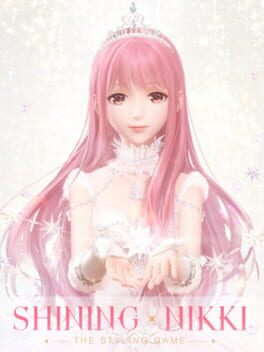
▲
2
▼
In 2020, to celebrate the launch of Shining Nikki in South Korea, Paper Games released a series of in-game wardrobe items based on the hanbok, a traditional Korean dress. This led to complaints from Chinese players, who objected to the hanbok being treated as a traditional Korean item and claimed that it was actually rooted in Chinese culture. On November 4, Paper Games released a statement supporting the argument that the hanbok was not Korean, and that "as a Chinese company, we want to reiterate that our stance is always consistent with our country China." They also announced that any accounts spreading misinformation about China or trying to insult the country would be blocked, implying that arguing that the hanbok was Korean counted as an offense. The hanbok items were ultimately removed from the game a day later.
This caused backlash from Korean players, who retaliated by deleting the game and applying for refunds for in-app purchases. On November 6, the game was delisted from Korean stores, resulting in demands that Paper Games be investigated for stealing Korea's cultural heritage and closing the service without offering compensation. This got to the point where Lee Sang-heon, a Democratic Party lawmaker from South Korea's National Assembly, called out Paper Games for siding with false claims from Chinese netizens and directing criticism towards Korean users. He also warned that their actions had violated South Korea's fair trade rules as they did not offer refunds and compensations prior to pulling the game from the country.
This caused backlash from Korean players, who retaliated by deleting the game and applying for refunds for in-app purchases. On November 6, the game was delisted from Korean stores, resulting in demands that Paper Games be investigated for stealing Korea's cultural heritage and closing the service without offering compensation. This got to the point where Lee Sang-heon, a Democratic Party lawmaker from South Korea's National Assembly, called out Paper Games for siding with false claims from Chinese netizens and directing criticism towards Korean users. He also warned that their actions had violated South Korea's fair trade rules as they did not offer refunds and compensations prior to pulling the game from the country.

▲
2
▼
Upon the release of the SpongeBob SquarePants parody fan game Mr. Krabs Overdoses on Ketamine, it proved to be a popular title for speedrunning, garnering over 160 submissions to the website Speedrun.com. However, it was rejected from the site under the logic of it being "short/trivial", fearing that people would either create short, low-effort fangames in a similar style to it for the sole purpose of claiming they have a world record, or locate obscure amateur non-commercial games for the sole purpose of owning a page on the website, potentially gatekeeping anyone who legitimately wants to play the game from submitting actual runs should they forget about the page. SpongeBob SquarePants: Battle for Bikini Bottom world record holder and one of the website's SpongeBob SquarePants series admins, SHiFT, provided a contradictory story, as he claimed to have been informed that Speedrun.com's admins were concerned about legal issues arising from the depiction of SpongeBob characters consuming drugs.
This proved to be a controversial decision for several reasons, among those being Mr. Krabs Overdoses on Ketamine was a viral game at the time, multiple other "trivial" categories (some taking mere seconds) already existed on Speedrun.com, and it was argued that a short game like this could serve as a gateway into speedrunning as a whole. The game would eventually be allowed on the site.
This proved to be a controversial decision for several reasons, among those being Mr. Krabs Overdoses on Ketamine was a viral game at the time, multiple other "trivial" categories (some taking mere seconds) already existed on Speedrun.com, and it was argued that a short game like this could serve as a gateway into speedrunning as a whole. The game would eventually be allowed on the site.
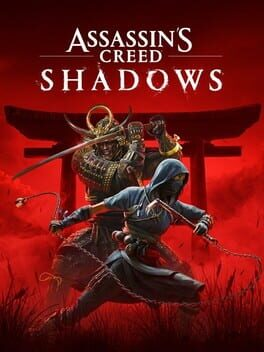
▲
-1
▼
One of the game's dual protagonists Yasuke, an African samurai, is the first main character in the series to be based on a real historical figure, but his real-life identity and status serving under Japanese daimyo Oda Nobunaga has been the subject of a contentious debate among historians. There are few scholarly/historical resources available describing him and his life, and no known resources from when he was alive that refer to him as a samurai, with the most common belief being his title was a retainer.
His reveal as a lead in the game on May 15, 2024 caused polarizing reactions worldwide on social media. Fans critical of the decision claimed Ubisoft were going against the series' penchant for accurate historical backgrounds and misrepresented Japan, which the series had never covered in-depth, by inflating Yasuke's role in history and not having both protagonists be Japanese (the other protagonist, Naoe, is Japanese), claiming he was not actually a samurai. Fans in support of his role claiming he was actually a samurai called these objections racist and based on narrow-minded arguments and inferences, with some claiming that Asian samurai protagonists in media were oversaturated and that complaints would be the same if the game was set in Africa and starred an African protagonist. This intense fighting led to an edit war on Yasuke's English Wikipedia article, with administrators publicly calling its Talk page "a complete dumpster fire". As of July 3, the consensus that the Talk page reached appears to be that the available historical resources are inconclusive as to if he was or was not a samurai, but that scholars consistently describe Yasuke as a samurai without any sources found where scholars do not describe him as one.
This lack of clarity allows popular media to take creative liberties in adapting him, often depicting him as a high-ranking samurai, and Ubisoft seemed to take a similar direction from the outset. A press release at the game's announcement stated:
Despite the header used, the quote is carefully worded to stop short of directly calling Yasuke a samurai, with more advertising describing him as a "samurai of historical legend". Game director Charles Benoit later acknowledged his life "is surrounded by mysteries" and that "[Yasuke] told us to tell" his story seen in the game, which was also described by associate narrative director Brooke Davies as historical fiction.
Creative director Jonathan Dumont stated in interviews with Famitsu on May 15 that they chose Yasuke to fit with the story of a foreigner who fights off oppressing forces like the Portuguese slave trade, while exploring a country unknown to him alongside the player, stating that they were "first looking for "our samurai," someone who could be our non-Japanese eyes". The following day, the interviews were edited to remove this quote, and to change quotes either directly or contextually referring to Yasuke as an "outsider" to being a "foreign-born samurai". After further mounting controversy, Ubisoft posted a statement to Twitter in English and Japanese on July 23 apologizing for elements in their promotional materials that "caused concern within the Japanese community", reiterating that the game's story was intended to be historical fiction and not an accurate recreation of events, and that Yasuke's real-life status was "a matter of debate and discussion". The Japanese statement received Community Notes pointing out that the stance taken was contradictory, citing several quotes from both the Famitsu interviews and an Xbox interview that emphasized confirming historical accuracy, but was removed from the statement hours later.
His reveal as a lead in the game on May 15, 2024 caused polarizing reactions worldwide on social media. Fans critical of the decision claimed Ubisoft were going against the series' penchant for accurate historical backgrounds and misrepresented Japan, which the series had never covered in-depth, by inflating Yasuke's role in history and not having both protagonists be Japanese (the other protagonist, Naoe, is Japanese), claiming he was not actually a samurai. Fans in support of his role claiming he was actually a samurai called these objections racist and based on narrow-minded arguments and inferences, with some claiming that Asian samurai protagonists in media were oversaturated and that complaints would be the same if the game was set in Africa and starred an African protagonist. This intense fighting led to an edit war on Yasuke's English Wikipedia article, with administrators publicly calling its Talk page "a complete dumpster fire". As of July 3, the consensus that the Talk page reached appears to be that the available historical resources are inconclusive as to if he was or was not a samurai, but that scholars consistently describe Yasuke as a samurai without any sources found where scholars do not describe him as one.
This lack of clarity allows popular media to take creative liberties in adapting him, often depicting him as a high-ranking samurai, and Ubisoft seemed to take a similar direction from the outset. A press release at the game's announcement stated:
"Yasuke: A Real-Life Samurai:
Ubisoft Quebec wanted to include a Samurai, and Yasuke's story was open-ended enough to allow for creativity; there are still plenty of questions and speculation surrounding him. The fascinating facts, though, were undisputable: of African origin, he arrived in Japan enslaved by the Portuguese; he impressed with size, strength, and wits; he served under the Japanese daimyo Oda Nobunaga. There must have been something exceptional about Yasuke to succeed in the service of a personality like Nobunaga's, [...] and the goal has been to expound on this in [the game] through his curiosity, openness, respect for values and tradition, valor, warmth, and charisma."
Ubisoft Quebec wanted to include a Samurai, and Yasuke's story was open-ended enough to allow for creativity; there are still plenty of questions and speculation surrounding him. The fascinating facts, though, were undisputable: of African origin, he arrived in Japan enslaved by the Portuguese; he impressed with size, strength, and wits; he served under the Japanese daimyo Oda Nobunaga. There must have been something exceptional about Yasuke to succeed in the service of a personality like Nobunaga's, [...] and the goal has been to expound on this in [the game] through his curiosity, openness, respect for values and tradition, valor, warmth, and charisma."
Despite the header used, the quote is carefully worded to stop short of directly calling Yasuke a samurai, with more advertising describing him as a "samurai of historical legend". Game director Charles Benoit later acknowledged his life "is surrounded by mysteries" and that "[Yasuke] told us to tell" his story seen in the game, which was also described by associate narrative director Brooke Davies as historical fiction.
Creative director Jonathan Dumont stated in interviews with Famitsu on May 15 that they chose Yasuke to fit with the story of a foreigner who fights off oppressing forces like the Portuguese slave trade, while exploring a country unknown to him alongside the player, stating that they were "first looking for "our samurai," someone who could be our non-Japanese eyes". The following day, the interviews were edited to remove this quote, and to change quotes either directly or contextually referring to Yasuke as an "outsider" to being a "foreign-born samurai". After further mounting controversy, Ubisoft posted a statement to Twitter in English and Japanese on July 23 apologizing for elements in their promotional materials that "caused concern within the Japanese community", reiterating that the game's story was intended to be historical fiction and not an accurate recreation of events, and that Yasuke's real-life status was "a matter of debate and discussion". The Japanese statement received Community Notes pointing out that the stance taken was contradictory, citing several quotes from both the Famitsu interviews and an Xbox interview that emphasized confirming historical accuracy, but was removed from the statement hours later.
Game website with "samurai of historical legend" quote:
https://www.ubisoft.com/en-us/game/assassins-creed/shadows
Ubisoft press release:
https://news.ubisoft.com/en-us/article/2LH4Ael4X1TlNJY3B3aYg5/assassins-creed-shadows-launches-november-15-features-dual-protagonists-in-feudal-japan
Ubisoft Forward - June 10, 2024:
https://www.youtube.com/watch?v=zPoJUPrCkkg#t=4602s
IGN Japan interview with Brooke Davies:
https://www.youtube.com/watch?v=bqwitaREyd0
Ubisoft article with several videos explaining historical backgrounds behind previous Assassin's Creed games:
https://news.ubisoft.com/en-us/article/6d4zQXyH0VF6z75Ab7jfss/discover-the-real-history-behind-every-assassins-creed
IGN articles:
https://www.ign.com/articles/when-and-where-is-assassins-creed-shadows-set
https://www.ign.com/articles/assassins-creed-shadows-yasuke-asian-protagonist
TheGamer article:
https://www.thegamer.com/african-assassins-creed-shadows-controversy/
Time article:
https://time.com/6978997/assassins-creed-shadow-yasuke-controversy/
Forbes article mentioning Wikipedia edit war and international reactions:
https://www.forbes.com/sites/olliebarder/2024/05/15/japanese-fans-are-puzzled-that-yasuke-is-in-assassins-creed-shadows/
Yasuke English Wikipedia article (Note: while much of this controversy occurred on English language Wikipedia, bear in mind that Wikipedia articles by themselves are not reliable sources for historical research, and the English article is not a uniform representation of the information on Yasuke across the different language versions of Wikipedia that have this article. There are varying primary, secondary, historical and pop culture sources suggested for and used in all of these articles either backing up verified information about him, or making different claims that may not be accurate.):
https://en.wikipedia.org/wiki/Yasuke
https://en.wikipedia.org/wiki/Talk:Yasuke
Wikipedia administrator discussion:
https://web.archive.org/web/20240518220622/https://en.wikipedia.org/wiki/Wikipedia:Administrators'_noticeboard/Incidents#Talk:Yasuke_is_a_complete_dumpster_fire
Earliest archive of original Famitsu interview (in Japanese; English machine translations for all archives of this article compared between Google Translate and DeepL prior to publishing this submission. Deleted quote in Japanese is "まず“私たちの侍”、つまり日本人ではない私たちの目になれる人物を探していましたが、これは") (May 15):
https://web.archive.org/web/20240515185159/https://www.famitsu.com/article/202405/5194
Archived edited interview (May 16):
https://web.archive.org/web/20240516194746/https://www.famitsu.com/article/202405/5194
Latest archived edit (May 18):
https://web.archive.org/web/20240518034336/https://www.famitsu.com/article/202405/5194
Ubisoft July statement (in English and Japanese; third link contains archived screenshots of the Japanese Community Notes):
https://x.com/assassinscreed/status/1815674592444187116
https://x.com/UBISOFT_JAPAN/status/1815674629643719061
https://x.com/DLibryum/status/1816342689127772542
Xbox interview:
https://news.xbox.com/ja-jp/2024/05/16/assassins-creed-shadows-interview/
https://www.ubisoft.com/en-us/game/assassins-creed/shadows
Ubisoft press release:
https://news.ubisoft.com/en-us/article/2LH4Ael4X1TlNJY3B3aYg5/assassins-creed-shadows-launches-november-15-features-dual-protagonists-in-feudal-japan
Ubisoft Forward - June 10, 2024:
https://www.youtube.com/watch?v=zPoJUPrCkkg#t=4602s
IGN Japan interview with Brooke Davies:
https://www.youtube.com/watch?v=bqwitaREyd0
Ubisoft article with several videos explaining historical backgrounds behind previous Assassin's Creed games:
https://news.ubisoft.com/en-us/article/6d4zQXyH0VF6z75Ab7jfss/discover-the-real-history-behind-every-assassins-creed
IGN articles:
https://www.ign.com/articles/when-and-where-is-assassins-creed-shadows-set
https://www.ign.com/articles/assassins-creed-shadows-yasuke-asian-protagonist
TheGamer article:
https://www.thegamer.com/african-assassins-creed-shadows-controversy/
Time article:
https://time.com/6978997/assassins-creed-shadow-yasuke-controversy/
Forbes article mentioning Wikipedia edit war and international reactions:
https://www.forbes.com/sites/olliebarder/2024/05/15/japanese-fans-are-puzzled-that-yasuke-is-in-assassins-creed-shadows/
Yasuke English Wikipedia article (Note: while much of this controversy occurred on English language Wikipedia, bear in mind that Wikipedia articles by themselves are not reliable sources for historical research, and the English article is not a uniform representation of the information on Yasuke across the different language versions of Wikipedia that have this article. There are varying primary, secondary, historical and pop culture sources suggested for and used in all of these articles either backing up verified information about him, or making different claims that may not be accurate.):
https://en.wikipedia.org/wiki/Yasuke
https://en.wikipedia.org/wiki/Talk:Yasuke
Wikipedia administrator discussion:
https://web.archive.org/web/20240518220622/https://en.wikipedia.org/wiki/Wikipedia:Administrators'_noticeboard/Incidents#Talk:Yasuke_is_a_complete_dumpster_fire
Earliest archive of original Famitsu interview (in Japanese; English machine translations for all archives of this article compared between Google Translate and DeepL prior to publishing this submission. Deleted quote in Japanese is "まず“私たちの侍”、つまり日本人ではない私たちの目になれる人物を探していましたが、これは") (May 15):
https://web.archive.org/web/20240515185159/https://www.famitsu.com/article/202405/5194
Archived edited interview (May 16):
https://web.archive.org/web/20240516194746/https://www.famitsu.com/article/202405/5194
Latest archived edit (May 18):
https://web.archive.org/web/20240518034336/https://www.famitsu.com/article/202405/5194
Ubisoft July statement (in English and Japanese; third link contains archived screenshots of the Japanese Community Notes):
https://x.com/assassinscreed/status/1815674592444187116
https://x.com/UBISOFT_JAPAN/status/1815674629643719061
https://x.com/DLibryum/status/1816342689127772542
Xbox interview:
https://news.xbox.com/ja-jp/2024/05/16/assassins-creed-shadows-interview/

subdirectory_arrow_right Epic Games (Company)
▲
1
▼
In May 2024, the Netherlands Authority for Consumers and Markets (ACM) fined Epic Games €1,125,000 for using "unfair commercial practices" aimed at children in Fortnite. The investigation found that Epic Games "exploited [the] vulnerabilities" of children through design choices in the game's Item Shop. Examples include the use of demanding phrases like "get it now" or "buy now" on certain advertisements, which the ACM deemed an "illegal aggressive commercial practice", as well as countdown timers that were used on some ads for items still available in the shop after the countdown ended, exploiting a fear of missing out by making items that were still available for sale falsely seem scarce. Epic Games immediately made changes to the game in response to this report, including removing countdown timers worldwide and adding time indicators for shop refreshes and item removal dates. As of May 24, 2024, players under 18 years of age in the Netherlands can only see items available for 48 hours or more in the store. However, the company still planned to appeal the decision, claiming that the ACM's findings contain factual errors about how Fortnite and the Item Shop operate.
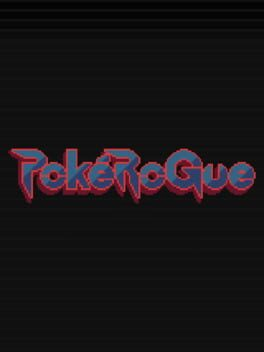
This trivia has been marked as "Not Safe for Work".
It may not be appropriate for all visitors and definitely isn't appropriate for work or school environments.
Click here to unhide it.
It may not be appropriate for all visitors and definitely isn't appropriate for work or school environments.
Click here to unhide it.
▲
2
▼
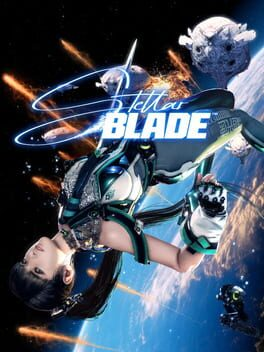
This trivia has been marked as "Not Safe for Work".
It may not be appropriate for all visitors and definitely isn't appropriate for work or school environments.
Click here to unhide it.
It may not be appropriate for all visitors and definitely isn't appropriate for work or school environments.
Click here to unhide it.
▲
1
▼
Sexualization complaints:
https://www.denofgeek.com/games/stellar-blade-controversy-explained/
South Korean rating:
https://en.as.com/meristation/news/stellar-blade-gets-an-adults-only-rating-due-to-nudity-and-explicit-gore-n/
Design choice quote:
https://fandomwire.com/hyung-tae-kim-stellar-blade-avoid-controversy/
Day 1 patch censorship:
https://esports.gg/news/stellar-blade/players-outraged-at-unexpected-stellar-blade-outfit-censorship/
Compilation of outfits in base game before Day 1 patch (uncensored versions of Cybernetic Bondage at 2:30, and Holiday Rabbit at 4:52):
https://www.youtube.com/watch?v=fMT6z9xejeA
Compilation of outfits after Day 1 patch (censored versions of Cybernetic Bondage at 1:03, Holiday Rabbit at 2:19, and Moutan Peony at 3:02):
https://www.youtube.com/watch?v=kAcvYBGPoGk
Nano Suit tutorial pop-up montage with uncensored Moutan Peony costume (this is the only footage I could find of anyone sitting through this video start to finish):
https://www.youtube.com/watch?v=eHJhViruQKM?t=3761
Stellar Blade uncensored claim tweet:
https://twitter.com/StellarBlade/status/1781976139688534449
Video of Hyung-Tae Kim defending update changes:
https://www.reddit.com/r/stellarblade/comments/1cdlllp/directors_answer_to_the_change_in_the_outfitvideo/
GameAbout interview with Kim (article in Korean):
https://www.gameabout.com/news/articleView.html?idxno=87017
Holiday Rabbit and Cybernetic Bondage costume reversal:
https://www.pushsquare.com/news/2024/05/stellar-blade-ps5-quietly-adds-uncensored-new-costumes-in-controversy-aftermath
IGN interview with Yoko Taro and Kim:
https://www.ign.com/articles/stellar-blade-x-nier-automata-taro-yoko-hyung-tae-kim
https://www.denofgeek.com/games/stellar-blade-controversy-explained/
South Korean rating:
https://en.as.com/meristation/news/stellar-blade-gets-an-adults-only-rating-due-to-nudity-and-explicit-gore-n/
Design choice quote:
https://fandomwire.com/hyung-tae-kim-stellar-blade-avoid-controversy/
Day 1 patch censorship:
https://esports.gg/news/stellar-blade/players-outraged-at-unexpected-stellar-blade-outfit-censorship/
Compilation of outfits in base game before Day 1 patch (uncensored versions of Cybernetic Bondage at 2:30, and Holiday Rabbit at 4:52):
https://www.youtube.com/watch?v=fMT6z9xejeA
Compilation of outfits after Day 1 patch (censored versions of Cybernetic Bondage at 1:03, Holiday Rabbit at 2:19, and Moutan Peony at 3:02):
https://www.youtube.com/watch?v=kAcvYBGPoGk
Nano Suit tutorial pop-up montage with uncensored Moutan Peony costume (this is the only footage I could find of anyone sitting through this video start to finish):
https://www.youtube.com/watch?v=eHJhViruQKM?t=3761
Stellar Blade uncensored claim tweet:
https://twitter.com/StellarBlade/status/1781976139688534449
Video of Hyung-Tae Kim defending update changes:
https://www.reddit.com/r/stellarblade/comments/1cdlllp/directors_answer_to_the_change_in_the_outfitvideo/
GameAbout interview with Kim (article in Korean):
https://www.gameabout.com/news/articleView.html?idxno=87017
Holiday Rabbit and Cybernetic Bondage costume reversal:
https://www.pushsquare.com/news/2024/05/stellar-blade-ps5-quietly-adds-uncensored-new-costumes-in-controversy-aftermath
IGN interview with Yoko Taro and Kim:
https://www.ign.com/articles/stellar-blade-x-nier-automata-taro-yoko-hyung-tae-kim

subdirectory_arrow_right The Witch and the Hundred Knight: Revival Edition (Game)
▲
1
▼
A major bug in The Witch and the Hundred Knight that can occur at seemingly any time will force the game to return to the system menu, losing all unsaved progress as a result. This became a common critique in the game's reviews, leading it to not be received as favorably by some. While The Witch and the Hundred Knight: Revival Edition did not fully fix this glitch, it occurs much less frequently, with playing for extended periods of time being noted as a possible factor.
Cubed3 review of the original version:
http://www.cubed3.com/review/1420/1/the-witch-and-the-hundred-knight-playstation-3.html
Cubed3 review of the Revival Edition:
http://www.cubed3.com/review/2786/1/the-witch-and-the-hundred-knight-revival-edition-playstation-4.html
http://www.cubed3.com/review/1420/1/the-witch-and-the-hundred-knight-playstation-3.html
Cubed3 review of the Revival Edition:
http://www.cubed3.com/review/2786/1/the-witch-and-the-hundred-knight-revival-edition-playstation-4.html

subdirectory_arrow_right Bethesda Softworks (Company)
▲
2
▼
According to former character artist Jonah Lobe, the response from Fallout fans and the fan website "No Mutants Allowed" to Bethesda purchasing the series from Interplay Entertainment and developing Fallout 3 consisted of "a lot of excitement, a lot of enthusiasm, and a lot of death threats." Lobe claimed that while he and other employees at Bethesda were not "privy" to most of the details on the threats due to the company shielding them from its workforce, as a result of the overwhelmingly vocal and mixed responses from fans, Bethesda had to hire a security guard for the first time in its 21-year history.
Platform: Virtual Boy
▲
1
▼
In a 2011 Iwata Asks interview, Shigeru Miyamoto expressed discontent at the Virtual Boy being marketed as a video game console. He believed it was simply a novelty toy and that it succeeded in that field despite its commercial failure as a game console:
"It was the kind of toy to get you excited and make you think, 'This is what we can do now!' […] as just a fun toy, it's a big success if you break just 50,000 […] [Its] sales generated some buzz, and crossed 100,000, then 200,000, then 500,000-quite a good pattern […] [But] when you think of it as a gaming platform, it becomes a failure."

subdirectory_arrow_right Final Fantasy X/X-2 HD Remaster (Game), Final Fantasy X-2 (Game), Final Fantasy (Franchise)
This trivia has been marked as "Not Safe for Work".
It may not be appropriate for all visitors and definitely isn't appropriate for work or school environments.
Click here to unhide it.
It may not be appropriate for all visitors and definitely isn't appropriate for work or school environments.
Click here to unhide it.
▲
1
▼
Unofficial Japanese to French to English translation of Final Fantasy X-2.5 ~Eien no Daishō~ (3 page forum thread):
https://ffx3chat.createaforum.com/general-discussion/~eternal-cost~-french-to-english-translation-47/
Final Fantasy -Will- (links include Japanese audio, English subtitles, and English audio):
https://www.youtube.com/watch?v=rpWZ4bli70Q
https://www.youtube.com/watch?v=JJd3Tfu5ulY
https://www.youtube.com/watch?v=nXf2RqR3lM4
Amazon link to the novella with mixed user reviews:
https://www.amazon.co.jp/FINAL-FANTASY-X-2-5-~永遠の代償~-ノベルズ/dp/4757541570
Article about novella criticism:
https://gamerescape.com/2014/01/03/final-fantasy-x-novella-causing-a-stir-among-japanese-fans/
Satirical article criticizing the novella:
https://web.archive.org/web/20150325022124/https://www.p4rgaming.com/square-enix-accidentally-publishes-fanfiction-for-the-final-fantasy-x-2-5-novel/
Videos covering X-2.5 and Will:
https://www.youtube.com/watch?v=YbELoIdX7Hg
https://www.youtube.com/watch?v=nDb7hsrcZUY
https://www.youtube.com/watch?v=lT7Qr0oG1SA
https://www.youtube.com/watch?v=J3ecZEPkemE
Blog posts discussing the plots of X-2.5 and Will:
https://marathonrecaps.wordpress.com/2021/03/18/final-fantasy-x-2-5-price-of-eternity-big-bad-book/
https://marathonrecaps.wordpress.com/2021/03/25/final-fantasy-x-2-5-price-of-eternity-violence-in-sports/
https://marathonrecaps.wordpress.com/2021/04/01/final-fantasy-x-2-5-price-of-eternity-kick-the-puppy-love/
https://marathonrecaps.wordpress.com/2021/05/13/final-fantasy-x-will-literally-listen-to-my-story/
https://marathonrecaps.wordpress.com/2021/05/20/final-fantasy-x-will-alls-well-that-ends-under-a-giant-whale/
https://ffx3chat.createaforum.com/general-discussion/~eternal-cost~-french-to-english-translation-47/
Final Fantasy -Will- (links include Japanese audio, English subtitles, and English audio):
https://www.youtube.com/watch?v=rpWZ4bli70Q
https://www.youtube.com/watch?v=JJd3Tfu5ulY
https://www.youtube.com/watch?v=nXf2RqR3lM4
Amazon link to the novella with mixed user reviews:
https://www.amazon.co.jp/FINAL-FANTASY-X-2-5-~永遠の代償~-ノベルズ/dp/4757541570
Article about novella criticism:
https://gamerescape.com/2014/01/03/final-fantasy-x-novella-causing-a-stir-among-japanese-fans/
Satirical article criticizing the novella:
https://web.archive.org/web/20150325022124/https://www.p4rgaming.com/square-enix-accidentally-publishes-fanfiction-for-the-final-fantasy-x-2-5-novel/
Videos covering X-2.5 and Will:
https://www.youtube.com/watch?v=YbELoIdX7Hg
https://www.youtube.com/watch?v=nDb7hsrcZUY
https://www.youtube.com/watch?v=lT7Qr0oG1SA
https://www.youtube.com/watch?v=J3ecZEPkemE
Blog posts discussing the plots of X-2.5 and Will:
https://marathonrecaps.wordpress.com/2021/03/18/final-fantasy-x-2-5-price-of-eternity-big-bad-book/
https://marathonrecaps.wordpress.com/2021/03/25/final-fantasy-x-2-5-price-of-eternity-violence-in-sports/
https://marathonrecaps.wordpress.com/2021/04/01/final-fantasy-x-2-5-price-of-eternity-kick-the-puppy-love/
https://marathonrecaps.wordpress.com/2021/05/13/final-fantasy-x-will-literally-listen-to-my-story/
https://marathonrecaps.wordpress.com/2021/05/20/final-fantasy-x-will-alls-well-that-ends-under-a-giant-whale/

subdirectory_arrow_right Fallout (Franchise)
▲
2
▼
During an interview with Variety Fair, Todd Howard revealed that the 2024 live-action "Fallout" TV series was considered canon to the games, having wanted to tell an original story within the game's world rather than adapt any of the previous games. However, when the show came out, this led to complaints from fans accusing the show of retconning the events of Fallout: New Vegas. Specifically, the sixth episode "The Trap" featured a shot of a blackboard seemingly depicting the fall of Shady Sands (the capital of the New California Republic) as taking place in the year 2277. Fallout: New Vegas takes place in the year 2281, yet Shady Sands is stated to still exist in the game without any mention of a fall (although the city cannot be visited in-game). Emil Pagliarulo, a design director for Bethesda, would try to assure fans on Twitter that Fallout: New Vegas is still considered canon, claiming to being overprotective of the series' lore and going as far as to post a timeline of the Fallout series. While the timeline not only featured both Fallout: New Vegas, the TV series, and also confirmed that Fallout Tactics: Brotherhood of Steel is considered canon to the series, it did not address the timeline inconsistency brought about by the blackboard scene in the show. This reportedly led some fans to accuse Bethesda of holding a grudge against Obsidian Entertainment for making what many fans consider to be the best Fallout game and using the show as a way to spite them. However, it's worth noting that there are three other possible explanations for the inconsistency:
• Whoever wrote "2277" was misinformed due to the post-apocalyptic setting forcing many to rely on guesswork for event dates.
• It could be a simple mistake in writing for a series with large amounts of lore to it.
• It could be a reference to the "Lonesome Road" DLC expansion for New Vegas, where the player is given the option to nuke the NCR, though there is no confirmation that this ending is canon.
Howard would later defend the TV series and insist the game is still canon in an interview with IGN, claiming he had an emotional reaction when the TV series writers brought up the idea of bombing Shady Sands (which he also clarified was not a nuclear bombing) and carefully talked through the decision with them. When asked specifically about the 2277/2281 inconsistency, his response was that they were "threading [the needle] tighter there" to make it land in the TV series, move the Fallout series forward, and insisted that the fall of Shady Sands took place just after the events of the game. He reiterated that Bethesda was careful about sticking to the series timeline, admitting that there "might be a little bit of confusion at some places" and claimed that what was most important to them was what was happening in the time period of the TV series.
• Whoever wrote "2277" was misinformed due to the post-apocalyptic setting forcing many to rely on guesswork for event dates.
• It could be a simple mistake in writing for a series with large amounts of lore to it.
• It could be a reference to the "Lonesome Road" DLC expansion for New Vegas, where the player is given the option to nuke the NCR, though there is no confirmation that this ending is canon.
Howard would later defend the TV series and insist the game is still canon in an interview with IGN, claiming he had an emotional reaction when the TV series writers brought up the idea of bombing Shady Sands (which he also clarified was not a nuclear bombing) and carefully talked through the decision with them. When asked specifically about the 2277/2281 inconsistency, his response was that they were "threading [the needle] tighter there" to make it land in the TV series, move the Fallout series forward, and insisted that the fall of Shady Sands took place just after the events of the game. He reiterated that Bethesda was careful about sticking to the series timeline, admitting that there "might be a little bit of confusion at some places" and claimed that what was most important to them was what was happening in the time period of the TV series.
Variety Fair interview:
https://www.vanityfair.com/hollywood/2023/11/fallout-first-look
Emil Pagliarulo Twitter thread:
https://twitter.com/Dezinuh/status/1777771276171698423
Article about the complaints:
https://www.rockpapershotgun.com/no-the-fallout-tv-show-hasnt-written-fallout-new-vegas-out-of-history-says-bethesda-studio-design-director
IGN interview:
https://www.ign.com/articles/the-big-fallout-interview-todd-howard-and-jonathan-nolan-answer-our-burning-questions-about-season-1
https://www.vanityfair.com/hollywood/2023/11/fallout-first-look
Emil Pagliarulo Twitter thread:
https://twitter.com/Dezinuh/status/1777771276171698423
Article about the complaints:
https://www.rockpapershotgun.com/no-the-fallout-tv-show-hasnt-written-fallout-new-vegas-out-of-history-says-bethesda-studio-design-director
IGN interview:
https://www.ign.com/articles/the-big-fallout-interview-todd-howard-and-jonathan-nolan-answer-our-burning-questions-about-season-1
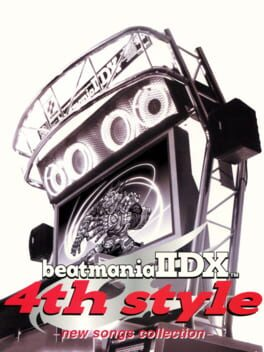
▲
2
▼
According to a tweet by dj TAKA, the song "ABSOLUTE" was originally called "Special Thanks". The name was changed after CG Designer VJ GYO and illustrator GOLI thought the name was "lame".
RemyWiki page on ABSOLUTE:
https://remywiki.com/ABSOLUTE
Tweet from dj taka:
https://twitter.com/iam_nota_djtaka/status/173088204960956417
https://remywiki.com/ABSOLUTE
Tweet from dj taka:
https://twitter.com/iam_nota_djtaka/status/173088204960956417
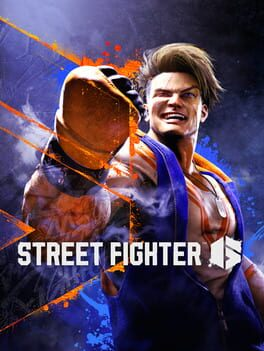
▲
1
▼
 When Street Fighter 6's preliminary logo was revealed, it was mocked for a variety of reasons, particularly a disconnect from previous series logos and aligning with a widely criticized trend of generic, minimalist or "oversimplified" logos. Some fans noted that the logo strongly resembled an $80 design for an "SF" logo posted on the Adobe Stock Image store by user xcoolee, which had previously been used for a sci-fi convention in France. xcoolee did offer to sell exclusive rights to the logo to Capcom, but was seemingly denied. It was also discovered that a Taiwanese electronics and appliances retailer, Sunfar, had a similar hexagonal logo. On the day after Street Fighter 6's logo reveal, the front page of their website displayed an advertisement with the logo featuring a paint splatter reading the number 6 promoting gaming products, most likely as a promotional parody. It is unknown if either resemblance was a coincidence on Capcom's part, and xcoolee did not state if they knew whether Capcom bought anything from their store or not. The logo of Street Fighter 6 would be updated to appear more stylized before the game's launch in response to the negative reception, although the fan reception to the new logo was not much more positive.
When Street Fighter 6's preliminary logo was revealed, it was mocked for a variety of reasons, particularly a disconnect from previous series logos and aligning with a widely criticized trend of generic, minimalist or "oversimplified" logos. Some fans noted that the logo strongly resembled an $80 design for an "SF" logo posted on the Adobe Stock Image store by user xcoolee, which had previously been used for a sci-fi convention in France. xcoolee did offer to sell exclusive rights to the logo to Capcom, but was seemingly denied. It was also discovered that a Taiwanese electronics and appliances retailer, Sunfar, had a similar hexagonal logo. On the day after Street Fighter 6's logo reveal, the front page of their website displayed an advertisement with the logo featuring a paint splatter reading the number 6 promoting gaming products, most likely as a promotional parody. It is unknown if either resemblance was a coincidence on Capcom's part, and xcoolee did not state if they knew whether Capcom bought anything from their store or not. The logo of Street Fighter 6 would be updated to appear more stylized before the game's launch in response to the negative reception, although the fan reception to the new logo was not much more positive.
Allegations of plagiarism:
https://www.eventhubs.com/news/2022/feb/22/street-fighter-6-logo/
https://kotaku.com/street-fighter-6-vi-capcom-graphic-design-logo-sf6-sf5-1848573656
Offer to sell:
https://www.ign.com/articles/street-fighter-6-logo-adobe-stock
Logo change:
https://kotaku.com/street-fighter-6-vi-capcom-logo-graphic-design-fix-upda-1849012069
https://www.distractify.com/p/street-fighter-6-logo
https://www.eventhubs.com/news/2022/feb/22/street-fighter-6-logo/
https://kotaku.com/street-fighter-6-vi-capcom-graphic-design-logo-sf6-sf5-1848573656
Offer to sell:
https://www.ign.com/articles/street-fighter-6-logo-adobe-stock
Logo change:
https://kotaku.com/street-fighter-6-vi-capcom-logo-graphic-design-fix-upda-1849012069
https://www.distractify.com/p/street-fighter-6-logo

subdirectory_arrow_right Yum Yum Cookstar (Game)
▲
2
▼
Yum Yum Cookstar appears to have been made as some kind of contingency over Cooking Mama: Cookstar's infamous legal disputes, being made by the same developers and publishers and having gone on sale on Steam a mere week before Cooking Mama: Cookstar was withdrawn from sale. While it is not known to what extent Yum Yum Cookstar is based on Cooking Mama: Cookstar, it does have a substantial difference in gameplay, having a psuedo-rhythm element that does not exist in the latter game.
Some prints of the box art have a printed sticker noting the game's connection to Cooking Mama: Cookstar, in spite of the controversy. The official website, TikTok account, and trailers for Yum Yum Cookstar proclaim the game to be made by "the creators of the best-selling hitgame[sic] Cookstar" (without acknowledging the Cooking Mama series by name) and use the slogan "This ain't your mama's kitchen!". The veracity of the claim of the first Cookstar being a best-seller is not known as sales figures have not been released.
Some prints of the box art have a printed sticker noting the game's connection to Cooking Mama: Cookstar, in spite of the controversy. The official website, TikTok account, and trailers for Yum Yum Cookstar proclaim the game to be made by "the creators of the best-selling hitgame[sic] Cookstar" (without acknowledging the Cooking Mama series by name) and use the slogan "This ain't your mama's kitchen!". The veracity of the claim of the first Cookstar being a best-seller is not known as sales figures have not been released.
Steam page with release date:
https://store.steampowered.com/app/1827430/Yum_Yum_Cookstar/
Article about Cookstar being withdrawn, note the release dates:
https://www.gamedeveloper.com/business/-i-cooking-mama-cookstar-i-to-be-delisted-following-court-ruling
The TikTok:
https://www.tiktok.com/@cookstar/video/7150753875803311402?lang=en
Box art scan with Cooking Mama: Cookstar sticker:
https://gamefaqs.gamespot.com/switch/328786-yum-yum-cookstar/boxes/908306
Yum Yum webpage:
https://galaxygames.co/yum-yum-cookstar/
https://store.steampowered.com/app/1827430/Yum_Yum_Cookstar/
Article about Cookstar being withdrawn, note the release dates:
https://www.gamedeveloper.com/business/-i-cooking-mama-cookstar-i-to-be-delisted-following-court-ruling
The TikTok:
https://www.tiktok.com/@cookstar/video/7150753875803311402?lang=en
Box art scan with Cooking Mama: Cookstar sticker:
https://gamefaqs.gamespot.com/switch/328786-yum-yum-cookstar/boxes/908306
Yum Yum webpage:
https://galaxygames.co/yum-yum-cookstar/
